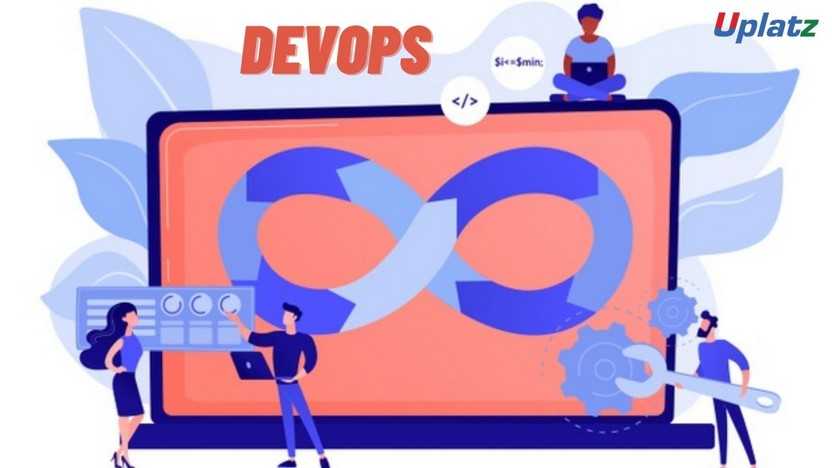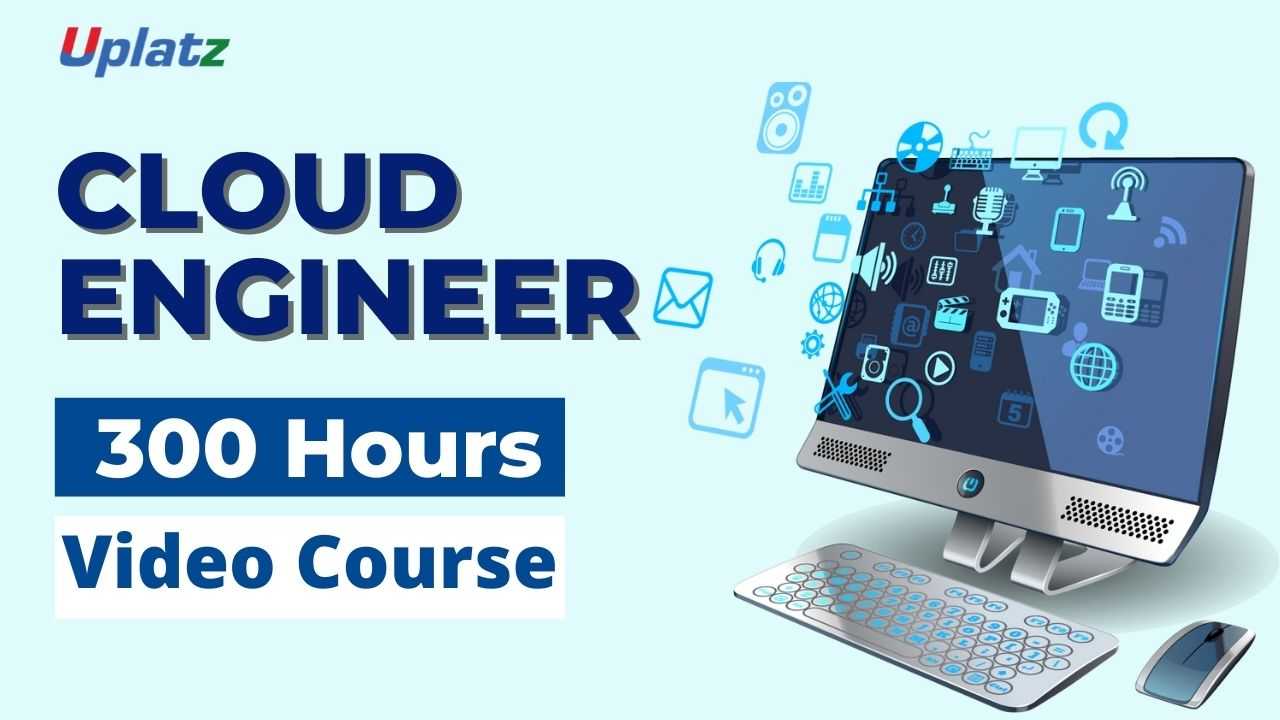Docker
Containerizing Your Applications: Building, Deploying, Orchestrating, and Scaling with Docker for Modern Development and DevOps ExcellencePreview Docker course
Price Match Guarantee Full Lifetime Access Access on any Device Technical Support Secure Checkout Course Completion Certificate 91% Started a new career
BUY THIS COURSE (
91% Started a new career
BUY THIS COURSE (GBP 12 GBP 29 )-
 99% Got a pay increase and promotion
99% Got a pay increase and promotion
Students also bought -
-

- DevOps
- 20 Hours
- GBP 12
- 1677 Learners
-

- Amazon Web Services (AWS)
- 28 Hours
- GBP 12
- 820 Learners
-

- Career Path - Cloud Engineer
- 300 Hours
- GBP 32
- 4412 Learners

Mastering Docker – Online Course
Mastering Docker Containerization for Modern DevOps and Cloud-Native Development is a comprehensive, self-paced online course designed to equip you with the skills needed to thrive in today’s fast-paced DevOps and cloud computing environments. Whether you're a developer, DevOps engineer, system administrator, or IT professional, this course will help you gain hands-on expertise in using Docker—the world’s most widely adopted containerization platform.
Docker has fundamentally changed the way software is developed, tested, and deployed. By enabling lightweight, portable, and consistent environments, Docker simplifies the process of delivering applications across different systems and platforms. It eliminates the classic “it works on my machine” problem and serves as the foundation for building robust Continuous Integration and Continuous Deployment (CI/CD) pipelines, essential for modern DevOps practices. In this course, you’ll dive deep into the world of Docker, exploring how it empowers developers to create, ship, and run applications reliably and efficiently in any environment.
This training goes beyond surface-level knowledge. You’ll start with the essentials—understanding what containers are, how Docker works under the hood, and how to build your own containerized applications. Then, you’ll progress to advanced topics like Docker networking, storage, image optimization, security best practices, and multi-container orchestration using Docker Swarm. Throughout the course, you’ll gain not just theoretical knowledge but also valuable practical experience through hands-on labs and real-world projects that simulate scenarios you’re likely to encounter in a professional setting.
By the end of this course, you will be proficient in Docker fundamentals and be confident in deploying containerized applications in a real-world environment. Upon completion, you will receive a Course Completion Certificate, showcasing your proficiency in Docker and enhancing your career credentials in DevOps, cloud computing, and software engineering.
Who This Course is For
This course is suitable for a wide range of learners, including:
- Software Developers looking to streamline application deployment and testing using containers.
- DevOps Engineers aiming to automate workflows, improve CI/CD pipelines, and manage container lifecycles.
- System Administrators and IT Professionals responsible for maintaining scalable, secure, and resilient infrastructure.
- Cloud Engineers and Architects deploying containerized applications across platforms like AWS, Azure, and Google Cloud.
- Students and Enthusiasts interested in exploring a foundational technology used in Kubernetes, microservices, and serverless architectures.
Whether you're transitioning into a DevOps role or enhancing your cloud-native skills, this course delivers the tools and techniques you need to become confident and job-ready.
What You Will Learn
Through this course, you'll gain a complete understanding of the Docker platform and its practical use in real-world development and deployment environments. Topics covered include:
- The architecture and components of Docker (Engine, Images, Containers, Registries)
- Creating and managing Docker containers and images
- Dockerfile syntax and best practices for building custom images
- Networking concepts: bridging, overlay, and port binding
- Managing data in Docker using volumes and bind mounts
- Multi-container applications using Docker Compose
- Introduction to container orchestration with Docker Swarm
- Security and resource optimization strategies
- Integrating Docker into DevOps workflows and CI/CD pipelines
You’ll also participate in several hands-on labs and projects designed to simulate industry use-cases, helping you reinforce your learning and build a strong portfolio of practical experience.
How to Use This Course Effectively
This course is designed to be flexible and self-paced, allowing you to learn on your own schedule. To help you make the most of it, here’s a step-by-step guide on how to use the course effectively:
1. Set Your Learning Goals
Start by identifying why you want to learn Docker. Are you preparing for a DevOps role? Do you want to simplify your development workflow? Are you deploying apps in the cloud? Setting your goals early will help you prioritize topics and apply the knowledge meaningfully in your own projects or workplace.
2. Follow the Course Structure
The course is organized into progressively complex modules. Even if you have prior experience with Docker, it's recommended to follow the course in sequence. This ensures a smooth learning curve and fills in any knowledge gaps, especially in foundational topics that support more advanced concepts.
3. Get Hands-On from the Start
Theory is important, but Docker is a practical tool best learned by doing. Make sure to complete all the hands-on exercises and labs. Set up a local Docker environment or use cloud-based sandbox services if preferred. As you work through the labs, try tweaking the examples and experimenting with your own configurations.
4. Take Notes and Reflect
Keep a notebook or digital document to record key concepts, commands, and troubleshooting tips. Summarizing what you’ve learned in your own words reinforces understanding and helps when you need to review later. Also, reflect on how each topic could be applied in your job or personal projects.
5. Work on the Real-World Projects
The course includes industry-style projects to simulate real development and DevOps tasks. Treat these projects seriously. Build your Dockerfiles, create Docker Compose environments, troubleshoot issues, and document your process. These projects can serve as valuable additions to your professional portfolio.
6. Engage With the Learning Community
If the course offers access to discussion forums, peer groups, or mentorship, take advantage of it. Engaging in discussions, asking questions, and helping others can deepen your understanding and make the learning journey more collaborative and enjoyable.
7. Apply Your Skills Beyond the Course
Once you grasp the basics, challenge yourself by applying Docker to your personal or work-related projects. Containerize an application you’ve built before. Create a mini CI/CD pipeline. Deploy an app to a cloud provider using Docker. The more you apply what you’ve learned, the more fluent and confident you’ll become.
8. Review and Repeat
Some topics—like networking, orchestration, and image optimization—may require multiple reviews. Don’t hesitate to revisit videos and labs until you’ve mastered them. Mastery often comes through repetition and practice.
9. Showcase Your Certificate
After completing the course and assessments, you’ll earn a Course Completion Certificate. Add it to your resume, LinkedIn profile, or personal website to demonstrate your capabilities. It’s a solid step toward standing out in job applications or internal promotions.
This course provides an immersive, project-driven journey into the world of Docker. It’s designed not just to teach you how to use Docker, but to prepare you to apply it effectively in real-world DevOps and cloud-native scenarios. By completing this course, you’ll join a growing community of professionals who are transforming the software development lifecycle using containerization and automation.
Whether you're modernizing legacy applications, building microservices, or deploying secure, scalable infrastructure, this course will empower you with the tools and confidence to lead the way.
Course/Topic 1 - Course access through Google Drive
-
Google Drive
-
Google Drive
By the end of this course, learners will be able to:
- Understand Containerization Fundamentals – Compare virtualization vs. containerization and learn Docker’s role in modern DevOps.
- Install and Configure Docker – Set up Docker on different platforms and manage Docker services.
- Master Docker Architecture – Learn about Docker Client, Docker Engine, and how they interact.
- Create and Manage Dockerfiles – Write efficient Dockerfiles using instructions like FROM, COPY, RUN, and ENTRYPOINT.
- Work with Docker Images – Build, tag, push, and manage images using Docker Hub and registries.
- Run and Manage Containers – Control container lifecycle, dependencies, and isolation.
- Implement Docker Volumes – Persist data using bind mounts and volumes.
- Use Docker Compose – Define multi-container applications with YAML and scale services.
- Orchestrate with Docker Swarm – Deploy scalable, fault-tolerant services across clusters.
- Prepare for Certification & Career Growth – Gain skills for Docker certification and DevOps roles.
Course Syllabus
Module 1: Introduction to Docker & Containerization
- Microservices vs. Monoliths
- Challenges in Traditional Deployments
- Virtualization vs. Containerization
- Docker’s Role in Modern DevOps
Module 2: Docker Installation & Setup
- Installing Docker on Linux/Windows/macOS
- Managing Docker Services
- Introduction to ECS (Elastic Container Service)
Module 3: Docker Architecture
- Docker Client and Engine
- How Containers Work Under the Hood
Module 4: Dockerfile Mastery
- Writing Efficient Dockerfiles
- Key Instructions: FROM, COPY, RUN, CMD, VOLUME
- Best Practices for Image Optimization
Module 5: Docker Images
- Layered Image Structure
- Building, Tagging, and Pushing Images
- Using Docker Hub and Private Registries
Module 6: Docker Containers
- Container Lifecycle Management
- Running Multi-Container Apps
- Isolation and Resource Limits
Module 7: Docker Volumes
- Persistent Storage with Volumes
- Bind Mounts vs. Named Volumes
Module 8: Docker Compose
- Defining Services in docker-compose.yml
- Scaling Services Locally
Module 9: Docker Swarm
- Orchestration Basics
- Deploying Services Across Nodes
- Scaling and Load Balancing
Module 10: Real-World Projects
- Containerizing a Web App
- Deploying a Microservice with Swarm
Upon successful completion, learners receive a Course Completion Certificate from Uplatz, validating their expertise in Docker and containerization. This certification demonstrates your ability to:
- Containerize applications efficiently
- Manage Docker images and containers
- Deploy scalable services using Docker Swarm
For those pursuing official Docker certification (e.g., Docker Certified Associate), this course provides a strong foundation. Hands-on labs and real-world projects ensure you’re job-ready for DevOps and cloud-native roles.
Completing this course opens doors to high-demand roles such as:
- Docker/Containerization Specialist
- DevOps Engineer
- Cloud Infrastructure Engineer
- Site Reliability Engineer (SRE)
- CI/CD Pipeline Developer
Industries like IT, finance, healthcare, and e-commerce seek professionals skilled in Docker to optimize deployments and scalability.
- What is Docker, and how does it differ from traditional virtualization?
Docker is a containerization platform that packages applications and dependencies into lightweight, isolated containers. Unlike VMs, containers share the host OS kernel, making them faster and more resource-efficient. - Explain Docker’s architecture.
Docker uses a client-server model: the Docker Client sends commands to the Docker Engine, which builds, runs, and manages containers. - What are the key instructions in a Dockerfile?
FROM (base image), COPY/ADD (files), RUN (commands), CMD/ENTRYPOINT (default commands), and VOLUME (persistent storage). - How do Docker volumes work?
Volumes persist data outside containers. Bind mounts link host directories, while named volumes are managed by Docker. - What is Docker Swarm?
Docker’s built-in orchestration tool for deploying scalable services across multiple nodes. - How does Docker Compose simplify multi-container apps?
It uses a YAML file to define and manage multi-container dependencies (e.g., web + database). - What are the benefits of containerization?
Portability, consistency, isolation, and efficient resource usage. - How do you optimize Docker images?
Use multi-stage builds, minimize layers, and remove unnecessary dependencies. - Explain Docker networking.
Containers communicate via bridge networks, host networks, or custom networks. - How do you secure Docker containers?
Limit privileges, scan images for vulnerabilities, and use secrets for sensitive data.









